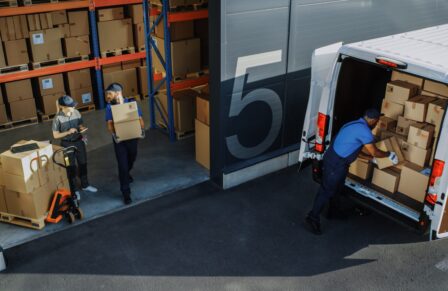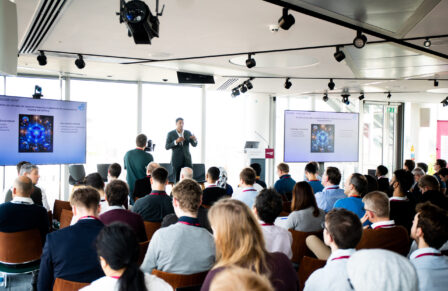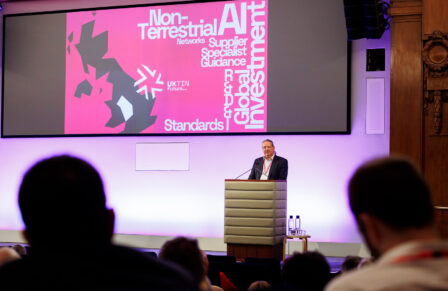UCL’s leading interactive design expert shares her vision for an equitable digital future
Posted 6 Mar 2023
This International Women’s Day Digital Catapult’s trailblazing Board share their insights…
A key part of Digital Catapult’s mission to accelerate digital adoption is working with the UK’s trailblazing founders, technology experts, and business leaders. To celebrate International Women’s Day and the crucial role women have played in accelerating the digital future, we sat down with our Board to hear more about their vision for an equitable digital future and how we can get there. In this interview we caught up with our newly appointed board member Yvonne Rogers.
Yvonne Rogers is the director of the Interaction Centre at UCL (UCLIC), deputy head of department for Computer Science and a Professor of Interaction Design. Her current research focuses on digitalisation, in all its various manifestations, with a focus on how human behaviour is being impacted and augmented through the design and adoption of new technologies.Yvonne is particularly interested in how humane applications of AI and smart technologies can be developed that benefit and disrupt society and frequently collaborates with industrial partners, and has been awarded a Microsoft Research Outstanding Collaborator Award (2016). Other awards include the Royal Society Robin Milner Medal (2022) and a MRC Suffrage and Science Award (2020) for being one of the leading women in ‘mathematics & computing’.
Yvonne was also elected as a Fellow of the Royal Society (2022), a Fellow of the ACM (2018); a Fellow of the British Computer Society (2014) and a Fellow of the ACM’s CHI Academy (2012).
What do you feel are the strengths of the UK technology ecosystem? How is it creating a more conducive environment for women to succeed than other ecosystems like Silicon Valley?
The UK is renowned for its forward-thinking approach to encouraging digital innovation. An example is witnessing the many start-ups that have emerged in digital healthcare and AI in the last couple of years, that are driven by core human values, such as privacy, safety, transparency, accountability and fairness. I have met several women who have entered this technology ecosystem who feel excited, well connected and very supported. This is a great indicator of how the UK technology ecosystem is progressing, these core values will be key for making sure women feel supported and welcomed on the UK’s digital innovation journey.
In which area would you like to see more progress? Where do we need to direct our tools, policy, and talent to ensure that women have the support they need to have a successful career in technology?
Something that will be key for ensuring women are able to have long successful careers in technology is more creative, educational tools. I would like to see new educational tools appear using AI, AR and other cool tech that can support much more creative and curious learning. Too many girls are still put off a career in technology or coding because of the way it is taught at school – even in 2023! More interactive solutions that enhance education in a way that is not simply teaching people to code can help get girls interested in technology careers at a young age.
The theme of IWD this year is ‘embrace equity’. At Digital Catapult we’ve been thinking a lot about how the metaverse can be an environment where stakeholders of all sizes feel empowered. Could you tell us what an equitable digital future looks like to you?
An equitable digital future is one where future digital tools and environments are developed in a way that allows everyone to benefit. Tools need to be adaptable especially for the people who least expect digital technology to work for them. For example, consider the way Zoom was a great enabler during the Pandemic, enabling many new kinds of social connections and interactions to take place, from toddlers interacting with their grandparents to heads of state discussing global policy, it was the unexpected use of this tool, for groups not initially considered its development that had the greatest impact.
How can our male allies support us in building an equitable digital future?
Our male allies can support us by focusing on listening, and stepping back sometimes to let other voices in.
What advice has been helpful for you throughout your career that you would like to share with other women?
Believe in yourself and grow in confidence. Don’t let louder voices get in the way of you wanting to get your ideas across.
What is one piece of advice would you give to someone interested in working in the technology industry?
Be passionate about how technology can empower humans. Be inquisitive about how this can be achieved.
At Digital Catapult we are committed to building an organisation that is fully representative and reflective of UK society. You can find out more about our equality, diversity and inclusion charter here.









